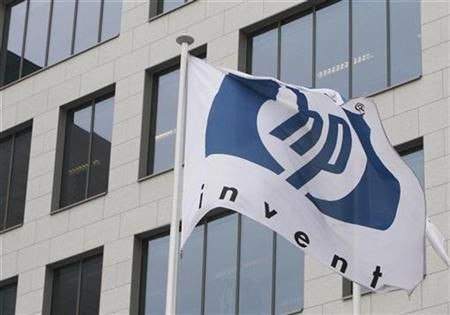HP Earnings A Mixed Bag

Hewlett-Packard reported earnings, and it was a good news-bad news quarter.
HP's revenue missed Wall Street expectations by a hair, coming in at $32.3 billion versus the Street's projections of $32.75-$33.59 billion. Earnings per share were up 26% year-over-year to $1.17, but it still missed analysts' expectations of between $1.26 and $1.32 per share.
The Palo Alto company has made moves to compete in the tablet market, with plans to roll out the TouchPad, a WebOS-based device that is in part the fruit of buying Palm last year. HP also unveiled two new laptop models for businesses, a nod towards competing better with Dell, which sells most of its computers to businesses rather than consumers.
But that doesn't alter the fact that HP had to deal with flat notebook computer sales across the industry. The company's personal systems group, which makes the computers, saw a 1 percent decline in revenue year-over-year, even though it delivered record profits. The group saw a decline in revenue of 12 percent from personal computer sales versus the same quarter last year, even as revenue from business sales jumped 12 percent.
The biggest growth was in the Enterprise server and networking markets, which showed 22 percent year-on-year revenue growth, a reflection of HP's continued emphasis in that area.
But HP still faces several question marks. The company is still in the midst of legal wrangling over the departure of Mark Hurd as CEO. Hurd was dismissed after revelations of a sexual relationship between him and a contractor. A shareholder, Ernesto Espinoza, has filed papers in Delaware Chancery Court to make the report from HP's lawyers on Hurd's departure public. Espinoza sued HP Nov. 18 seeking company records as a part of an investigation into possible wrongdoing by directors. The board granted Hurd a severance package worth as much as $40 million.
Then there is the question of the Touchpad and the Palm Pre. Both are facing tough competition from rival tablets and smartphones. The Palm Pre 2, which was released in October outside the U.S. and has only just become available to Americans, is running up against a much more robust app market for both Android and iOS platforms. The Pre has never commanded a large market share, and it isn't clear that HP will be able to change that.
The Touchpad will face many of the same challenges. It is a WebOS-based tablet, meaning that it will also need to have a whole different set of apps written for it than the Android-based rivals and Apple's iPad, which still leads tablet sales.
To contact th ereporter responsible for this story call (646) 461 6917 or email j.emspak@ibtimes.com
© Copyright IBTimes 2025. All rights reserved.





















